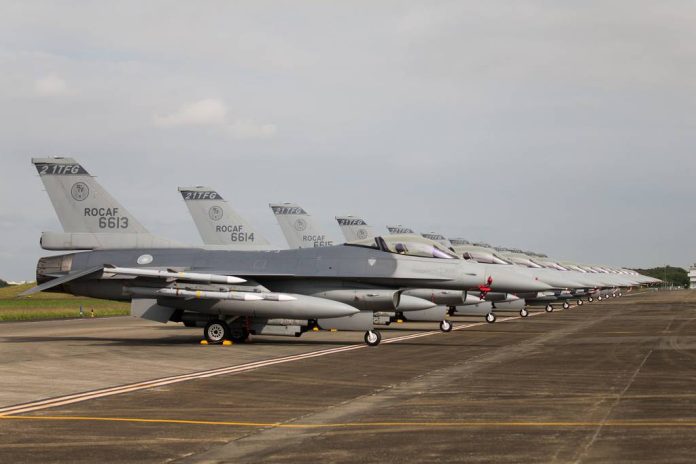United States President Joe Biden plans to ask Congress to approve an estimated $1.1 billion arms sales to the self-ruled island of Taiwan, including 60 anti-ship missiles and 100 air-to-air missiles, according to Politico. The package, still in early stages, reportedly includes 60 AGM-84L Harpoon Block II missiles for $355 million, 100 AIM-9X Block II Sidewinder tactical air-to-air missiles for $85.6m, and $655.4m for a surveillance radar contract extension. The Sidewinder missiles will be used to arm Taipei’s US-made F-16 fighter jets. Congress is expected to pass the deal after the Biden administration finalizes the arms sale and submits it to the foreign affairs committees. President Joe Biden’s administration and U.S. lawmakers are emphasizing their ongoing support for the government in Taipei, and Reuters reports that there are items in the approval pipeline for Taiwan that could be announced in the coming weeks or months. However, according to sources obtained by Reuters, the support will be to sustain Taiwan’s current military systems and fulfill existing orders rather than offer new capabilities which could increase strain with China.
The report of the new deal comes amid heightened tension with China, which has not ruled out the use of force to take control of the democratic island nation of Taiwan, or ROC (Republic of China), which it considers part of mainland China and belonging to the PRC (People’s Republic of China). Recently, China carried out its largest war games around the island after a visit this month by U.S. House Speaker Nancy Pelosi. On Sunday, the US said it had sent two of its warships through the strait in a “freedom of navigation” exercise. China on Monday dismissed complaints from Taiwan about repeated harassment by Chinese drones very close to Taiwanese-controlled islands as not anything “to make a fuss about”, prompting Taipei to label Beijing as thieves.
Despite this deal, the U.S. has maintained its adherence to the “One China” policy outlined in the Taiwan Relations Act of 1979, which stipulates that the U.S. would not establish formal diplomatic relations with Taipei. The TRA also created the “strategic ambiguity” doctrine, whereby the U.S. remains purposely noncommittal about whether it would militarily defend Taiwan against an invasion. Lawmakers from both parties in the U.S. have pushed to get rid of that policy as Taiwan faces increasing threats and intimidation tactics from China’s military, reports Politico.



